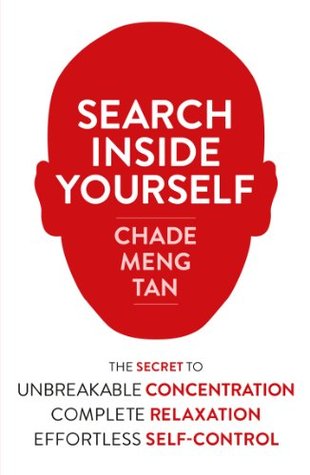More on this book
Community
Kindle Notes & Highlights
It is about dis-covering, re-covering, and un-covering that full dimensionality of your being that is already yours and then developing and refining it through systematic cultivation and practice.
Meng makes abundantly clear, his aim is to “make the benefits of meditation accessible to humanity” and as accepted in the
mainstream as the lifelong benefits of exercise.
well-tested pathway for the development and application of emotional intelligence in the workplace and at home.
Creating Useful Mental Habits Imagine whenever you meet anybody, your habitual, instinctive first thought is, I wish for this person to be happy.
What lies behind us and what lies ahead of us are tiny matters to what lies within us.
The ability to monitor one’s own and others’ feelings and emotions, to discriminate among them and to use this information to guide one’s thinking and actions.1
In the context of the work environment, emotional intelligence enables three important skill sets: stellar work performance, outstanding leadership, and the ability to create the conditions for happiness.
Every emotional experience is not just a psychological experience; it is also a physiological experience.
“a family of mental training practices that are designed to familiarize the practitioner with specific types of mental processes.”1
Meta-attention is attention of attention, the ability to pay attention to attention itself. Huh? Simply put, meta-attention is the ability to know that your attention has wandered away.
When your meta-attention becomes strong, you will be able to recover a wandering attention quickly and often, and if you recover attention quickly and often enough, you create the effect of continuous attention, which is concentration.
When the mind becomes highly relaxed and alert at the same time, three wonderful qualities of mind naturally emerge: calmness, clarity, and happiness.
Here is the analogy. Imagine you have a pot of water full of sediments, and imagine that pot is constantly shaken and agitated. The water appears cloudy. Imagine that you stop agitating the pot and just let it rest on the floor. The water will become calm and, after a while, all the sediments will settle and the water will appear clear. This is the classical analogy of the mind in the alert and relaxed state. In this state, we temporarily stop agitating the mind the same way we stop agitating the pot. Eventually, our mind becomes calm and clear, the same way the water appears calm and clear.
...more
This highlight has been truncated due to consecutive passage length restrictions.
become aware of your attitude toward yourself. See how you treat yourself and how often you engage in nasty gossip about yourself. If possible, shift the attitude toward self-directed kindness and curiosity.
When a friend or loved one is speaking to you, adopt a generous attitude by giving this person the gift of your full attention and the gift of airtime. Remind yourself that because this person is so valuable to you, he or she is entitled to all your attention and all the space and time needed to express himself or herself.
“The most precious gift we can offer others is our presence. When mindfulness embraces those we love, they will bloom like flowers.”4


